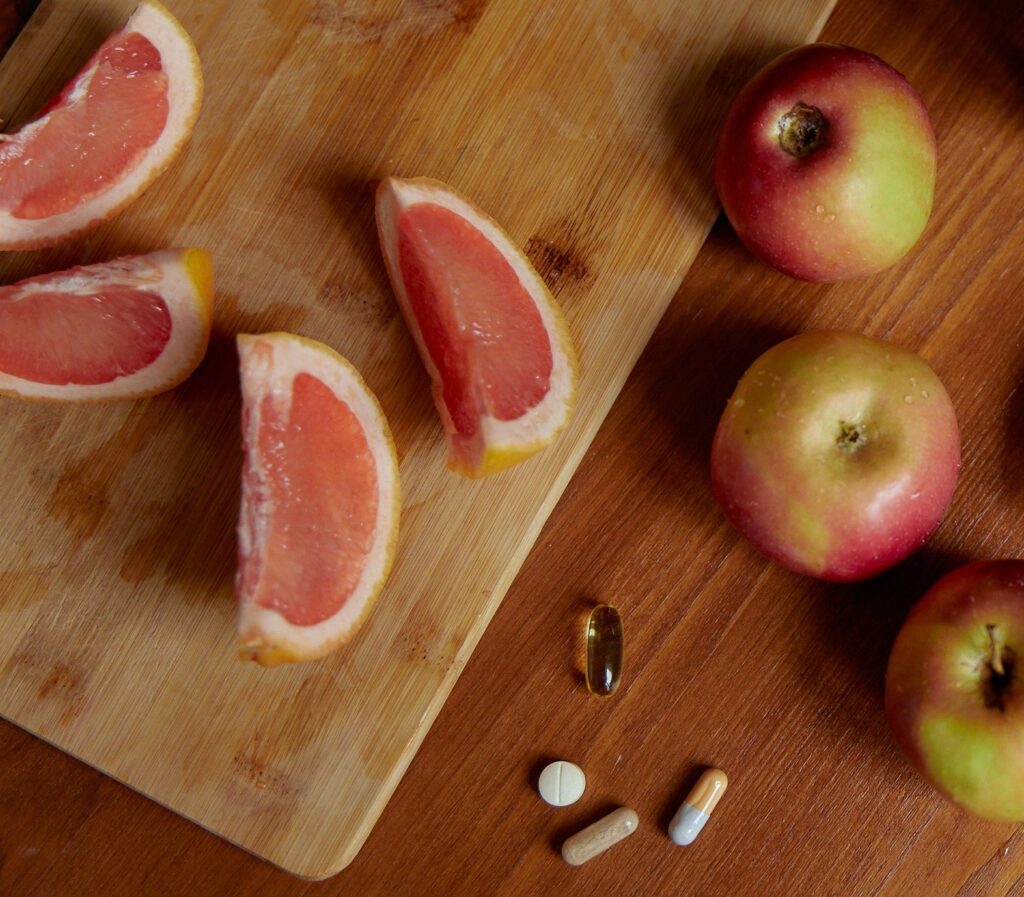Have you ever been told that you should avoid certain foods like grapefruit and broccoli, or alcoholic beverages, when taking certain medications? Certain foods and beverages can interfere with medications and herbal supplement, especially in the elderly.
Problems arise because natural chemicals or nutrients in foods or drinks can interfere with a medication, lessening its effectiveness or potentially having a stronger affect. Foods or beverages also can affect the enzymes that break down, or metabolize, the medication in your body. As a result, the medication may stay in your body for too short or too long a time.
A medication that’s broken down too quickly won’t have time to work. On the other hand, a medication that stays in the body too long may build up to potentially dangerous levels.
Don’t take these interactions lightly. Some can cause potentially dangerous health problems. It is important that you review your prescriptions, and other over-the-counter medications and supplements, with your pharmacist to determine any potential interactions or reactions.

Some of the most common foods and drinks that can cause problems:
- Grapefruit, orange, and cranberry juice.
- Vegetables rich in vitamin K: collards, spinach, kale, soybeans, broccoli, & carrot and pomegranate juice.
- Tyramine, found in aged cheese, sauerkraut, kimchi, processed meats and soy sauce.
- Licorice, or extract in candy or teas.
- Milk and milk products.
- Beverages: Beer, wine and spirits, and those that contain caffeine, such as coffee, tea or soda.
Examples to Keep you Healthy
| Drugs | Food | Drug-Food Interaction |
| WARFARIN | High-protein diet | raise serum albumin levels, decrease in international normalized ratio (INR) |
| Vegetables containing vitamin k | interferes with the effectiveness and safety of warfarin therapy. | |
| Charbroiled | decrease warfarin activity | |
| Cooked onions | increase warfarin activity | |
| Cranberry juice | elevated INR without bleeding in elderly patient | |
| Leafy green vegetables | thromboembolic complications may develop | |
| Charbroiled | decrease warfarin activity | |
| MONOAMNINE OXIDASES | Tyramine-containing food1 | hypertensive crisis |
| PROPRANOLOL | Rich protein food | serum level may be increased |
| CELIPROLOL | Orange juice | the intestinal absorption is inhibited |
| ACES INHIBITORS | Empty stomach | absorption is increased |
| CA2 CHANNEL | Grapefruit juice | increases the bioavailability |
| ANTIBIOTICS | with milk products | prevent their absorption. reduced bioavailability |
| ACETAMINOPHEN | Pectin | delays its absorption and onset |
| NSAIDS | Alcohol | can increase risk of liver damage or stomach bleeding |
| Beverages | the c max and auc0-alpha significantly increased | |
| THEOPHYLINE | High-fat meal and grapefruit juice | increase bioavailability |
| Caffeine | increases the risk of drug toxicity | |
| ESOMEPRAZOLE | High-fat meal | bioavailability was reduced |
| CIMETIDINE, RUPATADINE | with food (any type) | increase bioavailability |


